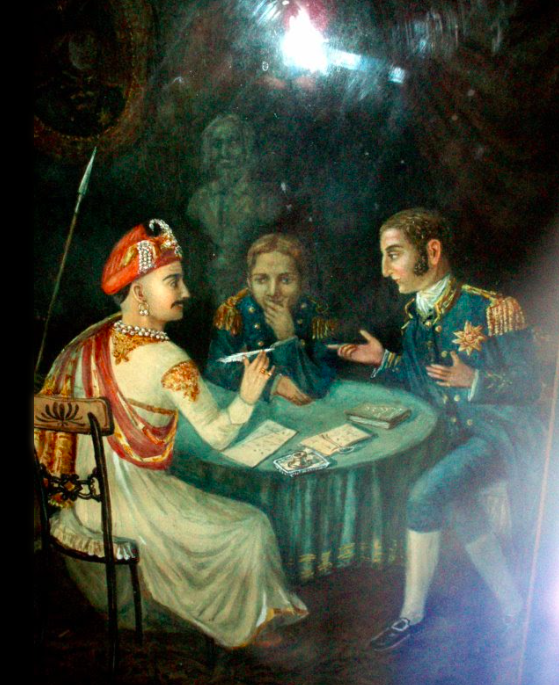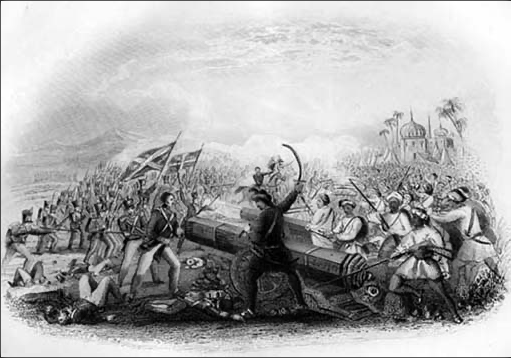#EmpireBalanceSheet Day 3. Today I hope to discuss a bit the Second Anglo-Maratha war (1803-1805). Being the "second" obviously means that there was a "first" war, and you would be correct to suppose so. As with the previous instalments of #EBS this is a story that begins not 1/
in the 19th, but in the 18th century, when the marauding and opportunistic East India Company (hereafter #EIC) took advantage of a number of local disputes among the leaders of the Maratha Confederacy in Western India, to relieve them from their own lands. The first war, in 2/
the 1770s, did not end well for the British (or for the French, who were also lurking at the time). After sending a military force to Pune to intervene in what was an internal matter, they were defeated and had to leave with the tail between their legs. The second war in the 3/
early years of the 19th century was a whole different affair. This time the #EIC, with the full support of the British Government, created a perfect opening when another internal dispute among the Maratha rulers surfaced, after one of them signed the Treaty of Bassein with 4/
the #EIC, giving some of the Marathas' territories away to the British. The rest of the Marathas saw this treaty as an offence and refused to validate it. To the British, however, this was an affront, as this was now their territory (irrelevant of what tricks they had used to 5/
obtained it) and they, well, they sharpened their teeth and went for it. After a number of bloody battles, including the ones at Assaye, Argaon and Laswari, the British prevailed. Their military superiority was unmatched by the Marathas, who were forced to sign the treaties of 6/
Surji-Anjangaon and Rajghat, by which they ceded a huge territory to the invading British forces, including Rohtak, Gurgaon, Ganges-Jumna Doab, Delhi-Agra, parts of Gujarat, Tonk, Bundi and Rampura, among a few others. Put into perspective, they pretty much lost most of 7/
western India. As if losing their lands were not enough, the human losses sustained the Maratha side were also quite significant. Only at the battle of Assaye it is calculated that they lost around 6,000 men. Even though the British won big, they still didn't have control of 8/
the entirety of western India after the war, so, this was then resolved a few years later, in 1817-1818, during the Third Maratha War, when they did snatched by force what they had been unable to take in 1805. The Third Maratha war, which I plan to discuss in a few weeks, 9/
resulted in the collapse of the Maratha Confederacy and the loss of their independence. From that moment on the entirety of western India passed onto British hands. For further reading, check the works of Sukumar Bhattacharyya, Pandit Sunderlal, & Sanish Nandakumar among others.

 Read on Twitter
Read on Twitter



